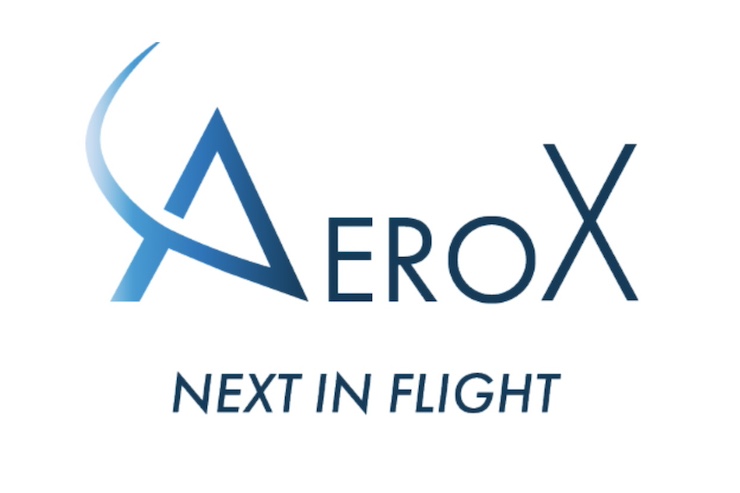
North Carolina, like Texas, is fast becoming one of the nation’s leading drone “hubs.” The Tarheel State is already tied for 4th place on the Mercatus Center’s 2023 scorecard ranking the “readiness” of US states to promote drone commerce. Part of its high ranking is due to a new program office in the Division of Aviation whose sole mission is to promote drone activities by government agencies across various niches. The state’s transportation department is especially active in welcoming fledgling drone companies to test their services at Washington-Warren airport, fueling their prototype development. And a number of leading drone companies, including Zipline and Wing. are already delivering badly-needed medical supplies to remote towns in rural areas.
But North Carolina has gone one step further: It’s also established an entire drone corridor – known as Project ATLAS, located in the state’s Piedmont region, near Winston-Salem – to begin testing a new air traffic management system that can safely integrate the operations of manned and unmanned aircraft in shared airspace.
Once the system’s up and running, drones will be able to fly autonomously, based on digitally programmed navigation, without the need for remote piloting, much less ground observation. And with onboard sensors to ensure obstacle avoidance, the risk of midair crashes and collisions between unmanned and unmanned aircraft will be minimized. This is the future of air transportation – for cargo delivery and passenger travel alike – and Project ATLAS places North Carolina on its cutting edge.
And thanks to state support, and backing from the FAA, Project Atlas’ development is already on a fast track. Last week, AeroX, the non-profit association that manages the project, invited a small UAV start-up – Drone Express – to begin piloting field tests of the new system. The Dayton, OH-based firm is no slouch: It recently began transporting pizza and store goods to residents of a suburb near its second home in Denver, CO. And it’s also just one of five drone companies currently authorized by the FAA to make long-distance deliveries on a Beyond the Visual Line of Sight (BVLOS) basis – which ensures that flights will be fully scalable and therefore, profitable.
Still, it was a bit of a surprise choice. The company is less than three years old — and its rivals are all better known, more seasoned and more heavily financed. It’s not clear why Drne Express got the nod but it’s a huge win for the three year old company. Getting in on the ground floor as a privileged FAA-backed partner in integrated air traffic management systems– a top FAA and industry priority – virtually guarantees the company’s long-term commercial success.
Basil Yap, AeroX’s president, says his non-profit association is excited to be working with its fast-rising star. “We are thrilled to welcome Drone Express to AeroX, and to the region. As an industry leader, Drone Express brings a commitment to safety and a wealth of experience in drone delivery operations, which are critical to the success and reliability of Project ATLAS,” Yap said in a statement last week.
Russell Kline, Drone Express’ Chief Regulatory Officer, also sees big things ahead for his young start-up. “Our participation in AeroX demonstrates Drone Express’s commitment not only to advancing technology but also to maintaining the highest regulatory standards. Through our collaboration with AeroX, we will ensure that our operations meet the highest degree of safety and serve as a model for the industry.”
The FAA is sponsoring drone corridors and UTM experiments elsewhere – in upstate New York, for example – but North Carolina’s unusually favorable regulatory environment – including a recent $5 million grant from the state assembly – is likely to make ATLAS one of its flagships.
And Drone Express won’t be operating alone. Another industry upstart – Arrive, an Indiana-based technology company that designs “smart” cargo receptacles and mailboxes for automated drone deliveries, has also joined the consortium. With Arrive’s cutting-edge technology, the need for unsecured drone package drops to designated landing zones at appointed times – via parachute or tether cable – can be avoided. Instead, drones can deliver their cargo to locked containers for storage and eventual pickup, reducing the risk of theft or package damage.
Arrive has already begun establishing the ground-based infrastructure that will allow for BVLOS package deliveries by Drone Express to become fully automated as well as seamlessly integrated into an autonomous UTM system – the first of its kind in the nation. The two companies still need to coordinate the data management and logistics requirements for their combined operations, and to liaise with air traffic controllers at nearby Smith Reynolds Airport.
But the project is keeping to a hectic pace: if all goes as planned, AeroX officials say the new UTM system will be fully tested and operational on a pilot basis by the end of this year.
